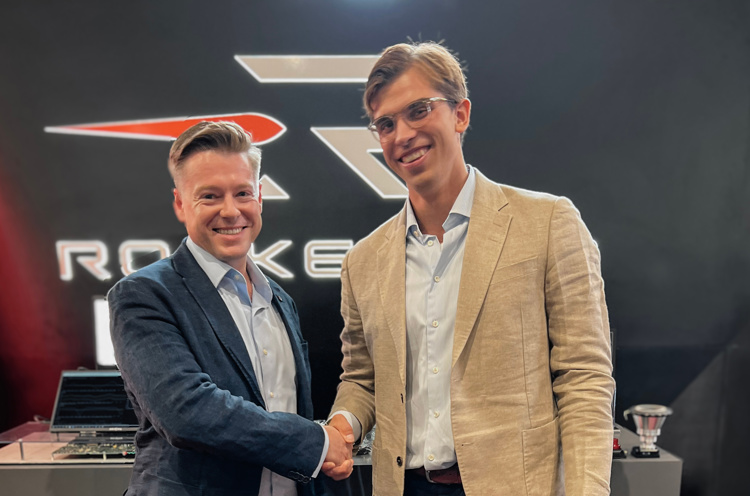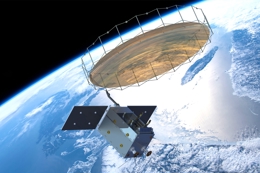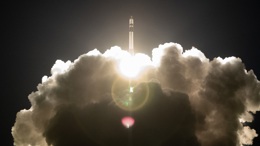SmallSat Conference 2024, Utah:
The new service is an enhancement of the existing KSATlite portfolio to provide seamless, automated support for launch vehicles and deorbit operations. Designed to meet the growing demands of the space industry, this new service with unique antenna tracking features and extended monitoring and control capabilities enables complex mission support.
– Our fully automated launch and deorbit service represents a major advancement in ground station technology, Arthur Kvalheim Merlin, Director of Ground Network Products, says.
– By integrating this capability into our KSATlite network, we are setting a new standard for efficiency and reliability in space operations. This innovation will not only streamline the process for our customers but also significantly reduce operational risks and costs, he continues.
KSAT targets an operational readiness of the service in 2025, with one of its earlier customers being Rocket Lab and their brand-new Neutron rocket.
Mutual Benefits of Co-Engineering: KSAT and Rocket Lab
The development of this service has been greatly enhanced by the close collaboration between KSAT and Rocket Lab, a global leader in launch services and space systems. Rocket Lab’s Electron launch vehicle is one of the world’s most frequently launched rockets, having successfully delivered 190+ satellites to space for government and commercial customers across science and exploration missions, Earth observation, weather monitoring, and national security. Further expanding its launch capabilities, Rocket Lab is developing its new medium-lift reusable rocket Neutron to launch constellations of satellites, national security and defense missions, and interplanetary missions from mid-2025. Rocket Lab also designs, builds, launches, and operates spacecraft for a variety of government and commercial satellite operators, enabling missions to the Moon for NASA, and providing in-space operations, deorbit, and return-to-Earth spacecraft re-entry operations for commercial customers like Varda Space Industries.

By working together, both companies have leveraged their expertise to create a more efficient and reliable service. This co-engineering effort not only benefits KSAT and Rocket Lab but also provides significant advantages for launch and satellite operators by offering improved service quality and reduced operational costs.
– Since partnering with KSAT in 2019, KSATlite has been the primary ground station network supporting our Electron launch vehicle and LEO satellites. We’ve worked closely with KSAT to develop new capabilities unique within the Ground-Segment-as-a-Service industry. These capabilities have enabled us to reliably support a high Electron launch cadence and missions with complex mission designs, including launch of a spacecraft into lunar orbit and earth atmosphere re-entry of a manufacturing probe, Bill Lance, Global Director of RF Engineering, says.
– This collaboration sets a new standard within the industry. Leveraging a standardized, global ground station network that supports the needs of both our launch and space systems divisions enables us to focus on our strategic programs and enhance the overall service we provide to our customers, he states.
Key Features and Benefits
- Automation: The service offers end-to-end automation, from the pre-launch test to the actual launch event, eliminating the need for manual intervention and reducing the risk of human error.
- New features: unique antenna tracking features suitable for support of complex mission design and extended monitoring and control capabilities.
- Scalability: The KSATlite network's scalable infrastructure ensures that the service can accommodate a wide range of missions across any location.
- Global Coverage: With an extensive network of ground stations strategically located around the globe, KSATlite provides unparalleled coverage and connectivity for launchers and satellite operators.
- Reliability: The automated system is built on KSAT’s proven technology, ensuring high reliability and uptime for critical operations.
- Cost Efficiency: By automating key processes, the service reduces operational costs, providing a cost-effective solution for launch companies and satellite operators.
- Standarization: Application of industry standards including IRIG-106 ensures compatibility for mission operations



